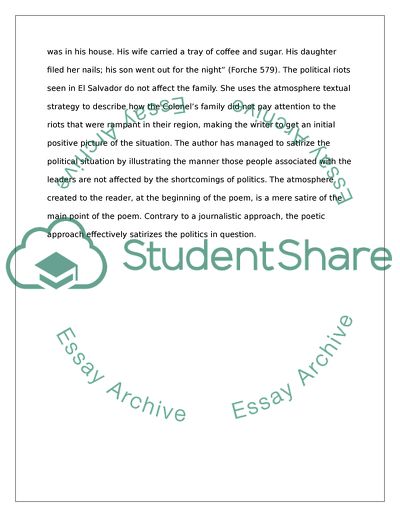Cite this document
(Carolyn Forches poem The Colonel Essay Example | Topics and Well Written Essays - 1750 words, n.d.)
Carolyn Forches poem The Colonel Essay Example | Topics and Well Written Essays - 1750 words. Retrieved from https://studentshare.org/literature/1835662-final-draft-of-textual-analysis-essay
Carolyn Forches poem The Colonel Essay Example | Topics and Well Written Essays - 1750 words. Retrieved from https://studentshare.org/literature/1835662-final-draft-of-textual-analysis-essay
(Carolyn Forches Poem The Colonel Essay Example | Topics and Well Written Essays - 1750 Words)
Carolyn Forches Poem The Colonel Essay Example | Topics and Well Written Essays - 1750 Words. https://studentshare.org/literature/1835662-final-draft-of-textual-analysis-essay.
Carolyn Forches Poem The Colonel Essay Example | Topics and Well Written Essays - 1750 Words. https://studentshare.org/literature/1835662-final-draft-of-textual-analysis-essay.
“Carolyn Forches Poem The Colonel Essay Example | Topics and Well Written Essays - 1750 Words”, n.d. https://studentshare.org/literature/1835662-final-draft-of-textual-analysis-essay.


